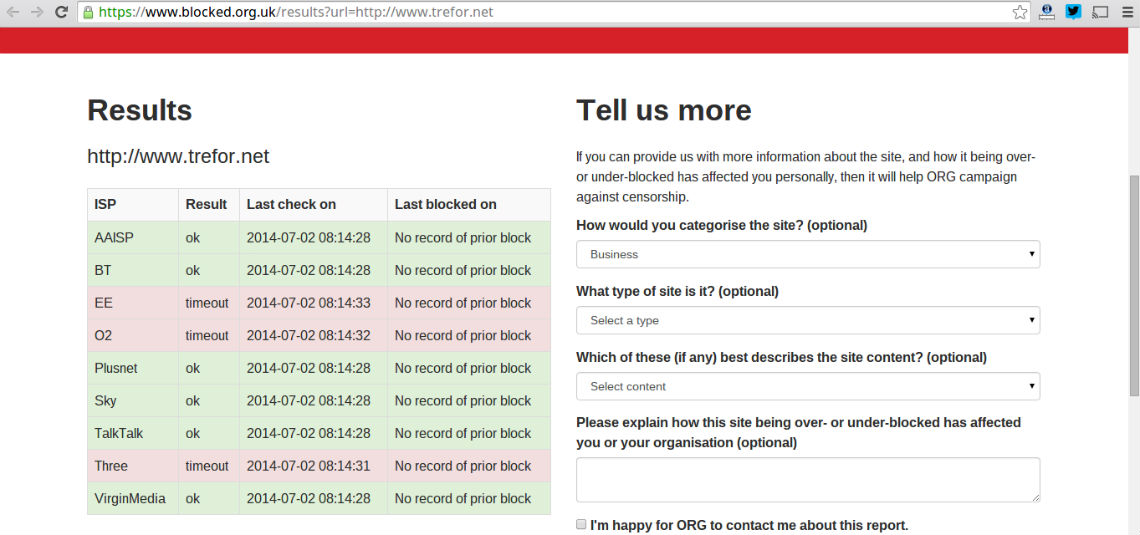See if your website is being blocked by ISPs using the Open Rights Group (ORG) website blocking Blocked resource.
Had an interesting tweet this morning from @boggits pointing me at blocked.org.uk, specifically this link. It shows, as is seen in the header screenshot, that three mobile networks: 3, O2 and EE have blocked users access to trefor.net.
My only prior personal experience of website blocking is when the Timico firewall blocked access to the blog. V funny you have to admit but at least I had direct control over that situation and was able to report it to myself myself, if you see what I mean. It was simply blocking access to blogs rather than having noted lots of dodgy content.
Blocking blogs as a blanket act is now a somewhat naive and outdated activity.
None of the mobile networks are blocking access to trefor.net at the moment, as far as I know. Maybe hundreds of people complained. Don’t argue – it could be what happened:). Typically mobile networks block dodgy sites as standard although you can call them to ask for the blocks to be removed:
“ring ring (x20) … hello this is your mobile operator customer service executive here … oh you want the blocks removed (snigger snigger) … certainly sir, all done for you … ”
I had to do it once because the SIM in my laptop was being blocked from accessing the online portal I was using to manage my VoIP account. Also there was a fun scenario where our private APN service was being used to apply policies to corporate network access and I’d deliberately type in porn addresses to show website blocking in action. Jared the IT must have had a few eyebrow raises at that one.
Website blocking by court order for the likes of Pirate Bay haven’t yet been applied as far as I am aware. Someone is sure to point out my mistake if I’m wrong there.
Anyway that’s it on the website blocking front for today. Gotta go to Laandan. Ciao amigos.
